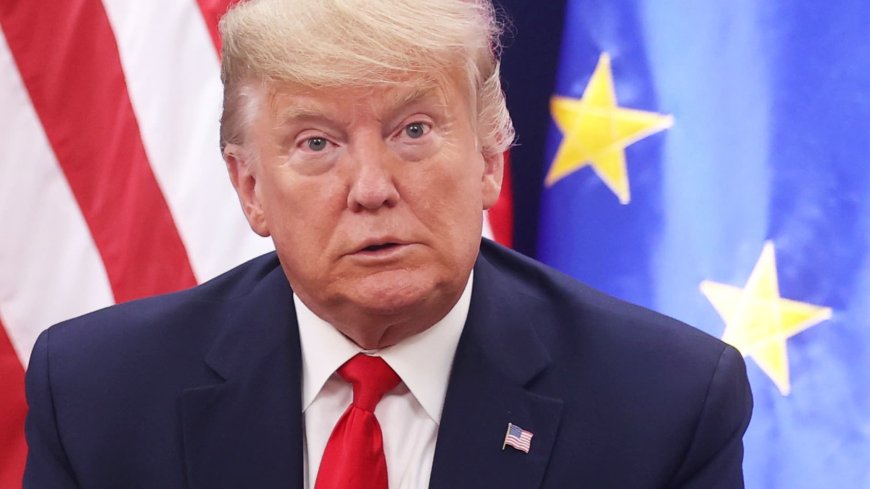EU Considers 'Trade Bazooka' to Counter Trump's Tariff Threats
The European Union is contemplating using its 'Anti-Coercion Instrument' as a deterrent against potential trade disputes with the U.S. amid looming threats of a 30% tariff on EU imports. The ACI, created in 2023 but never used before, aims to prevent economic coercion and could lead to restrictions on U.S. suppliers' access to the EU market and other response measures.

President Donald Trump attended a bilateral meeting with European Commission President Ursula von der Leyen during the 50th World Economic Forum (WEF) annual meeting in Davos, Switzerland, on January 21, 2020.
The European Union is considering deploying its \"Anti-Coercion Instrument\" as a deterrent against trade disputes, with a looming threat of a 30% tariff on EU imports. Several EU member states, including France and Germany, are contemplating using anti-coercion measures against the U.S. if a trade deal with President Donald Trump cannot be reached. These measures could involve restricting U.S. suppliers' access to the EU market, imposing export and import restrictions, and limiting foreign direct investment in the region.
The EU's \"trade bazooka\" may be deployed as Trump's trade dispute with the bloc intensifies. The White House has set a deadline to impose a 30% tariff on EU imports to the U.S. on August 1 if no trade deal is reached by then, although negotiations could continue beyond that date.
What is the ACI?
Trade relations between the U.S. and EU have soured, with Trump accusing the EU of unfair trading practices due to its trade surplus in goods. While the EU recorded a surplus in goods but a deficit in services with the U.S., the overall trade surplus with the U.S. was around 50 billion euros in 2024. As the EU faces Trump's tariff threats, it is considering counter-tariffs on U.S. imports and potentially activating the Anti-Coercion Instrument (ACI), designed to deter economic coercion from third-party countries.
The ACI allows the EU to respond to coercion through various measures, including import and export restrictions, intellectual property rights limitations, and restrictions on foreign direct investment. It also empowers the EU to impose restrictions on U.S. access to the EU market, affecting public procurement and sales of certain goods and services.
Use of the ACI would require a thorough investigation by the European Commission, followed by member states' approval for response measures. The Commission would engage in talks with the offending party before implementing any measures.
Last-minute negotiations are ongoing to secure a trade deal with the U.S., aiming for a 10% baseline tariff deal and protection for key industries like autos, agriculture, machinery, and aerospace. The EU is prepared to retaliate with counter-tariffs and utilize the ACI to push for a deal with the Trump administration.
According to the source: CNBC.
What's Your Reaction?
 Like
0
Like
0
 Dislike
0
Dislike
0
 Love
0
Love
0
 Funny
0
Funny
0
 Angry
0
Angry
0
 Sad
0
Sad
0
 Wow
0
Wow
0


























































































































































































